Product
Categories
FILTER BY PRICE
-
Sale!
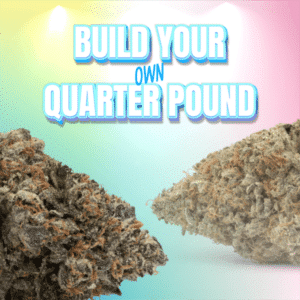 0 out of 5
0 out of 5QP of Weed
0 out of 5$600.00Original price was: $600.00.$500.00Current price is: $500.00. Select options -
Sale!
 0 out of 5
0 out of 5Half Pound of Weed
0 out of 5$900.00Original price was: $900.00.$800.00Current price is: $800.00. Select options -
Sale!
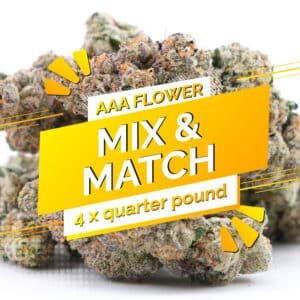 0 out of 5
0 out of 5Pound of Weed
0 out of 5$1,500.00Original price was: $1,500.00.$1,300.00Current price is: $1,300.00. Select options
Rosin
Rosin is one of the purest, most natural cannabis concentrates available today. Created without solvents or chemicals, it delivers intense flavor, potency, and a clean experience that appeals to both medical patients and cannabis connoisseurs. Whether you’re looking to dab, vape, or even make edibles, rosin offers a versatile and health-conscious choice.
This guide covers everything you need to know—from how rosin is made to its legal status and market trends.
Showing all 22 results
-

 0 out of 5
0 out of 5Alien Dawg Rosin (Squish Extracts)
0 out of 5$60.00 -

 0 out of 5
0 out of 5Black Diamond Rosin (Squish Extracts)
0 out of 5$60.00 -
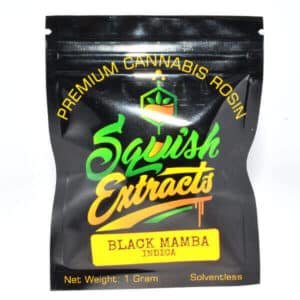 0 out of 5
0 out of 5Black Mamba Rosin (Squish Extracts)
0 out of 5$60.00 -
 0 out of 5
0 out of 5Blunicorn Rosin (Squish Extracts)
0 out of 5$60.00 -
 0 out of 5
0 out of 5Cake Crasher Rosin (Squish Extracts)
0 out of 5$60.00 -
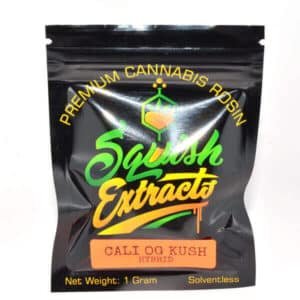 0 out of 5
0 out of 5Cali OG Rosin (Squish Extracts)
0 out of 5$60.00 -
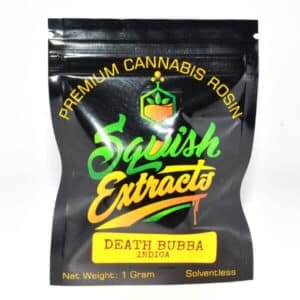 0 out of 5
0 out of 5Death Bubba Rosin (Squish Extracts)
0 out of 5$60.00 -
 0 out of 5
0 out of 5Goji Berry (Squish Extracts)
0 out of 5$60.00 -
 0 out of 5
0 out of 5Grapefruit Rosin (Squish Extracts)
0 out of 5$60.00 -
 0 out of 5
0 out of 5Hindu Kush Rosin (Squish Extracts)
0 out of 5$60.00 -

 0 out of 5
0 out of 5Hooti Extracts Rosin
0 out of 5$60.00 -
 0 out of 5
0 out of 5King Tut Rosin (Squish Extracts)
0 out of 5$60.00 -
 0 out of 5
0 out of 5Lemon Haze Rosin (Squish Extracts)
0 out of 5$60.00 -
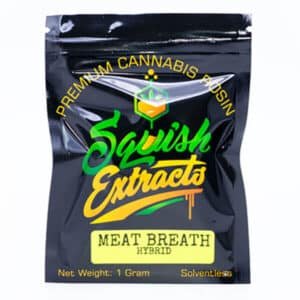 0 out of 5
0 out of 5Meat Breath Rosin (Squish Extracts)
0 out of 5$60.00 -

 0 out of 5
0 out of 5Moby Dick Rosin (Squish Extracts)
0 out of 5$60.00 -
 0 out of 5
0 out of 5Monkey Breath Rosin (Squish Extracts)
0 out of 5$60.00 -
 0 out of 5
0 out of 5Pink Kush Rosin (Squish Extracts)
0 out of 5$60.00 -
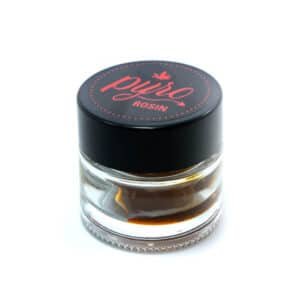 0 out of 5
0 out of 5Pyro Extracts Rosin
0 out of 5$55.00 -
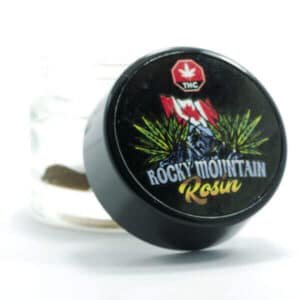 0 out of 5
0 out of 5Rosin (Rocky Mountain Rosin)
0 out of 5$45.00 -

 0 out of 5
0 out of 5Silver Haze Rosin (Squish Extracts)
0 out of 5$60.00 -

 0 out of 5
0 out of 5Squish Extracts Rosin
0 out of 5$60.00 -
 0 out of 5
0 out of 5Sugar Cookie Rosin (Squish Extracts)
0 out of 5$60.00
Rosin Uncovered: 17 Essential Insights About This Solventless Cannabis Extract
Rosin is one of the purest, most natural cannabis concentrates available today. Created without solvents or chemicals, it delivers intense flavor, potency, and a clean experience that appeals to both medical patients and cannabis connoisseurs. Whether you’re looking to dab, vape, or even make edibles, rosin offers a versatile and health-conscious choice.
This guide covers everything you need to know—from how rosin is made to its legal status and market trends.
What is Rosin?
Simple Definition and Background
Rosin is a solventless cannabis extract produced using only heat and pressure. Unlike other concentrates that rely on butane or CO2, rosin maintains the natural integrity of the plant, making it a favorite among health-conscious users.
Why It’s Considered “Clean”
Because it involves zero solvents, rosin is often described as “clean” or “pure.” It’s free from residual chemicals and typically delivers a full-spectrum cannabinoid and terpene experience.
How is Rosin Made?
Solventless Extraction Process
Rosin is created by pressing cannabis flower, hash, or kief between heated plates with significant pressure. The heat melts the trichomes, and the pressure forces out a golden, sticky substance—rosin.
Tools Used
- Rosin Press – The most essential tool, ranging from hand presses to hydraulic models.
- Heat Plates – Control temperature precisely to extract rosin without burning it.
- Parchment Paper – Used to collect the rosin safely and cleanly.
Types of Input Materials
- Flower Rosin – Made directly from cannabis buds.
- Hash Rosin – Made from bubble hash or dry sift for higher purity.
- Kief Rosin – Pressed from trichome-rich kief, typically found at the bottom of grinders.
Rosin vs Other Cannabis Concentrates
| Concentrate | Uses Solvents? | Flavor | Ease of Use | Potency |
|---|---|---|---|---|
| Rosin | ❌ No | ✅ Very High | ✅ Easy | High |
| Shatter | ✅ Yes | Moderate | Moderate | Very High |
| Budder | ✅ Yes | High | Easy | High |
| Live Resin | ✅ Yes | Very High | Moderate | High |
Rosin wins on cleanliness, flavor, and environmental friendliness. It may have slightly lower yields, but the quality speaks for itself.
Texture, Color, and Aroma of Rosin
How to Recognize High-Quality Rosin
- Color: Golden yellow to light amber
- Texture: Can range from sappy to creamy or butter-like
- Aroma: Strong and reflective of the strain used
Factors Affecting Consistency
- Pressing temperature: Higher temps produce sappy textures; lower temps yield buttery textures.
- Strain type and moisture content also impact yield and texture.
THC and CBD Levels in Rosin
Potency Analysis
Rosin typically contains 60–85% THC for flower rosin and up to 90% for hash rosin. CBD-rich strains can produce high-CBD rosin for medicinal use.
Best Strains for High Cannabinoid Rosin
- Gorilla Glue – High THC
- Harlequin – High CBD
- Blue Dream – Balanced profile with a smooth high
Health Benefits of Using Rosin
Solventless = Safer
Rosin eliminates the risks associated with residual solvents like butane or propane, making it safer for daily use.
Relief from Pain and Anxiety
Rosin is used by medical patients for:
- Chronic pain
- Inflammation
- Anxiety
- PTSD
Better for Immunocompromised Users
Patients with compromised immune systems or lung conditions often prefer rosin due to its purity.
Popular Ways to Consume Rosin
Dabbing
The most common way—apply a dab to a heated nail or banger and inhale the vapor.
Vaping with Concentrate Pens
Portable and discreet, rosin-compatible vape pens are becoming more available.
Edibles Using Decarbed Rosin
Rosin can be activated (decarboxylated) and infused into butter or oil for cooking.
Why Rosin is Loved by Purists
No Chemicals or Residues
Rosin retains the natural profile of the cannabis strain without chemical interference.
Full-Spectrum Cannabinoid and Terpene Profiles
Unlike some solvent-based extracts that strip terpenes, rosin preserves flavor and effects more completely.
Making Rosin at Home
DIY Rosin Pressing Guide
- Preheat press to 180–220°F
- Wrap material in parchment paper
- Press for 30–60 seconds with high pressure
Affordable Rosin Press Options
Manual presses can cost under $300. Professional hydraulic models go upwards of $1,000.
Legal Considerations
Check local laws. While pressing is legal in many areas, some regions restrict cannabis concentrates.
Live Rosin vs Regular Rosin
What’s the Difference?
- Live Rosin: Made from fresh frozen flower → hash → rosin. Retains the highest terpene content.
- Regular Rosin: Made from dried and cured flower or kief.
Flavor, Potency, and Price Comparisons
| Type | Flavor | Potency | Price |
|---|---|---|---|
| Live Rosin | 🌟🌟🌟🌟🌟 | 🌟🌟🌟🌟 | $$$$ |
| Regular Rosin | 🌟🌟🌟 | 🌟🌟🌟 | $$ |
Best Storage Practices for Rosin
Keeping Potency and Texture
Store in airtight glass containers in a cool, dark place.
Refrigeration vs Room Temp
Refrigeration prolongs shelf life but avoid freezing—rosin can lose consistency and become crumbly.
Is Rosin Legal Worldwide?
Countries/States Where It’s Legal
- Legal: Canada, California, Colorado, Oregon
- Restricted/Illegal: Many Asian and Middle Eastern countries
Traveling with Rosin
Avoid traveling with rosin internationally. Even if cannabis is legal at your destination, airport rules vary.
Top Cannabis Strains for Pressing Rosin
- GMO Cookies – Terpene-rich and high-yield
- Wedding Cake – Balanced flavor and potency
- Papaya – Known for incredible aroma and resin production
Common Issues and Fixes When Pressing Rosin
| Issue | Fix |
|---|---|
| Low yield | Increase pressure or moisture |
| Burnt smell | Lower pressing temperature |
| Sticky and hard to collect | Use a colder collection surface |
Environmental Impact of Rosin vs Solvent Extracts
Rosin is significantly more eco-friendly:
- No chemical waste
- Lower energy use
- Safer production environment
Rosin Trends in the Cannabis Industry
- Solventless brands are on the rise
- Home pressing kits becoming more affordable
- Live rosin carts are gaining traction for convenience and purity
FAQs About Rosin
1. What is rosin in cannabis?
Rosin is a solventless cannabis extract made using heat and pressure, known for purity and flavor.
2. Is rosin better than shatter or wax?
It depends—rosin is cleaner and more flavorful, while shatter may offer higher potency.
3. Can I make rosin at home?
Yes, with a rosin press and the right material. It’s legal in some regions but check your laws.
4. How strong is rosin?
Rosin typically contains 60–90% THC, depending on the input material.
5. Can you use rosin for edibles?
Yes, just decarboxylate it first and infuse it into fat like butter or oil.
6. What’s the shelf life of rosin?
Stored properly, it can last 6–12 months without significant degradation.
